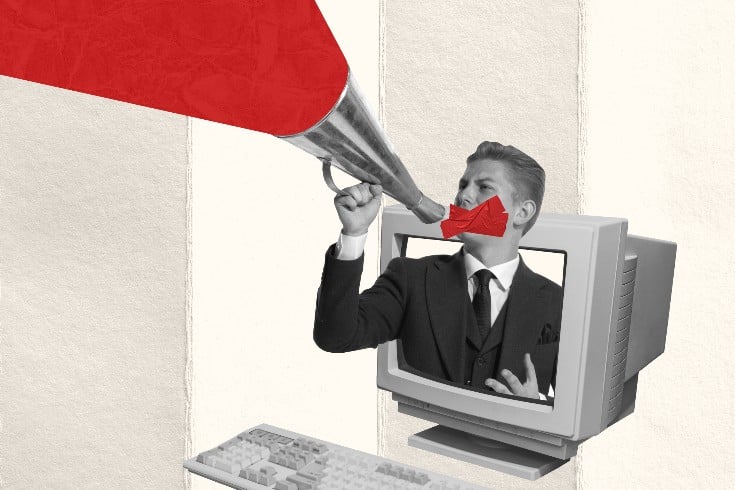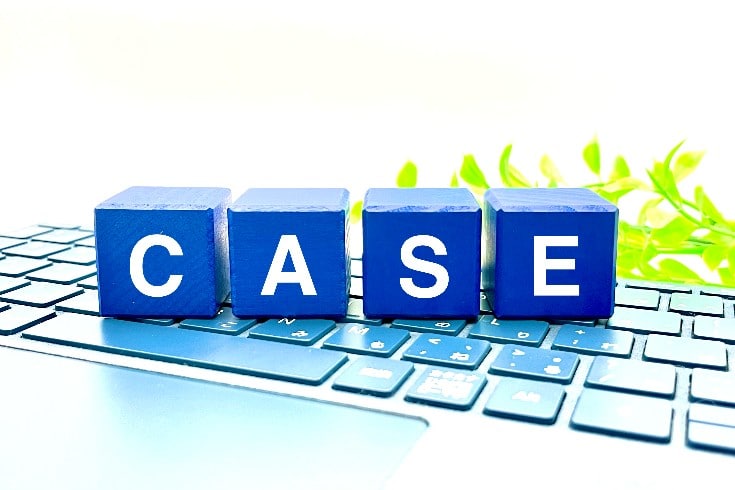Online Defamation and Privacy Infringement

Privacy Infringement
Not only in cases where criminal liability such as defamation and insult crimes occur, but also when posted content infringes on the privacy of the subject, online postings can become problematic, leading to legal responsibility for the poster.
While the Japanese Criminal Code does not have provisions to punish privacy infringement, civil liability can still arise even if criminal liability does not.
Even if the content posted is true, legal liability arises in the case of privacy infringement
After causing a stir, some perpetrators may be puzzled, thinking, “I only posted the truth.” However, even if the content is factual, legal liability arises in cases involving privacy infringement.
In fact, if the information is true, the damage to the victim who has their information disclosed could be even greater. This can result in a higher amount being claimed for damages. Unlike defamation, the lowering of social reputation is not a factor here. The only matter of concern is whether the victim felt discomfort or anxiety.
We will explain about the “Scope of privacy infringement on the Internet”.
The Four Requirements for Recognizing and Infringing Privacy
In the judgment of the “After the Banquet” case (September 28, 1964), the Tokyo District Court recognized the right to privacy as a “legal guarantee or right not to have one’s private life arbitrarily made public,” and established four requirements for an infringement of privacy:
- It must be a fact of private life or something that could be perceived as such.
- It must be something that, based on the sensibilities of the general public and from the perspective of the individual in question, would not be desired to be made public.
- It must be something that is not yet known to the general public.
- The individual in question must have actually felt discomfort or anxiety due to the disclosure.
These were the conditions set.
Examples of Recognized Privacy Infringement

Privacy infringement has been addressed in numerous court cases even before the advent of the internet, accumulating precedents and clarifying the scope of privacy infringement.
Infringement Recognized in the “After the Banquet” Case
Along with the above judgment, the Tokyo District Court recognized privacy infringement when the plaintiff felt “particularly uncomfortable, ashamed, or disgusted” due to the “narration of various events in private life”.
Infringement Recognized in the “Fish Swimming in Stone” Case
The Tokyo High Court stated on February 15, 2001 (Heisei 13), “The fact of an individual’s disability or illness is among the most private information that one would not want others to know. Especially when the fact of a disability related to appearance is disclosed in combination with other attributes of the person, as in this case where the disability is a rare condition, it becomes the object of public curiosity.” The court ruled this as a privacy infringement and criticized the lack of consideration for those suffering from facial tumors. The Supreme Court dismissed the appeal without holding an oral argument.
Infringement Recognized in the Nonfiction “Reversal” Case
The Supreme Court ruled on February 8, 1994, “At the time the book in question was published, the defendant had a legally protected interest in not having the fact of his criminal record disclosed. There is no reason to justify the plaintiff’s disclosure of this fact using the defendant’s real name in the book. If the plaintiff uses the defendant’s real name in the book, it is inevitable that the fact of his criminal record will be disclosed.” The court recognized the author’s liability for damages and dismissed the appeal.
Whether information about arrest records or criminal history constitutes privacy infringement is a very common issue on the internet.
Infringement Recognized in the Jiang Zemin Lecture at Waseda University Case
The Supreme Court ruled on September 12, 2003, that Waseda University, in response to a request from the Tokyo Metropolitan Police Department, submitted a list of students who attended a lecture by Jiang Zemin, the President of the People’s Republic of China. The court stated, “Student ID numbers, names, addresses, and phone numbers are simple information used by Waseda University for personal identification, and the need for secrecy is not necessarily high. However, it is natural for individuals to not want this personal information disclosed to unwanted others, and such expectations should be protected. Therefore, this personal information should be considered legally protected information related to the appellants’ privacy.”
Internet and Privacy Infringement
While the examples mentioned above have been discussed since before the spread of the internet, there have been numerous court cases that have clarified the scope of privacy infringement after the advent of the internet.
Case of Posting Images and Names
In a lawsuit requesting the disclosure of sender information to an intermediary provider regarding the posting of images and names on an internet site, the Tokyo District Court stated on February 27, 2009 (Heisei 21), “If a person’s name and appearance are known, it is easy to identify a specific individual, and information that shows both is important personal identification information. Furthermore, a name constitutes part of the rights of personality, and one’s appearance should not be photographed or made public as an image without a legitimate reason.” The court also stated, “Such information belongs to a person’s privacy, and the freedom of the individual to decide whether or not to disclose it, and if so, to whom and in what manner, should be respected. Such information, without a legitimate reason, should not be made public to unwanted third parties in an unwanted manner, and the interest in not doing so should be legally protected.”
Case of Posting Profession, Clinic Address, and Phone Number
An ophthalmologist, who was arguing on a Nifty bulletin board, was posted with his profession, clinic address, and phone number by his opponent, recognizing and foreseeing that aggressive responses (including harassing phone calls that the plaintiff actually received afterwards) could occur. He sought compensation and filed a lawsuit. Although the address and phone number of the ophthalmologist’s clinic are advertised in the regional professional phone book, making it difficult to say that they are purely private matters, the Kobe District Court stated on June 23, 1999 (Heisei 11), “It is not unreasonable for a person who has made his or her information public for a certain purpose to want to prevent it from being known beyond the scope unrelated to the purpose of publication, so as not to be misused for purposes other than the right one. This should also be considered a benefit that should be protected. Controlling information about oneself is a fundamental attribute of the right to privacy and is included in it.” The court accepted the plaintiff’s claim for damages.
Case of Posting Spouse’s Name, Address, etc.
In a lawsuit where the plaintiff sought damages for a post on a bulletin board managed by the defendant, which included the name and address of the plaintiff’s spouse, the names of the plaintiff’s relatives, and the locations and phone numbers of the main and branch offices of the company run by the relatives, the Tokyo District Court stated:
“The defendant posted the above information related to the plaintiffs on an internet bulletin board that anyone can easily access. By doing so, the defendant placed information that the plaintiffs do not want to be disclosed indiscriminately to others in a situation where an unspecified number of third parties can view it. On the other hand, there is no need to disclose the above information related to the plaintiffs on this bulletin board.”
Tokyo District Court, January 21, 2009 (Heisei 21)
The court accepted the plaintiff’s claim for damages.
As such, even if information is made public in the form of corporate registration, it does not mean that it must be indiscriminately exposed to an unspecified number of people on internet bulletin boards and the like. The same applies to bankruptcy information.
Anonymous Blog Operator Information and Privacy Infringement

The disclosure of various social account information operated anonymously will also be a point of discussion in the future.
There are many examples where postings on bulletin boards and the like have been considered an invasion of privacy, but there are also unique issues related to the internet.
For example, if the account information of a blog, X (Twitter), Instagram, etc., which is operated anonymously, is disclosed, can it be considered an invasion of privacy?
There was a case where a woman was operating an anonymous blog about her battle with early-onset breast cancer. In her real life, she had kept her illness a secret from anyone other than close relatives and friends. However, due to the defendant’s post, her name and other details were identified, and the fact that she had early-onset breast cancer became known to the general public. She claimed that her privacy had been violated and sued for damages such as consolation money.
The plaintiff had mentioned in her blog that she was employed as a music teacher at a public elementary school in A ward, Tokyo, and that she was instructing the school’s brass band.
Also, the plaintiff had posted pictures on her blog with her face hidden and purikura pictures showing only her eyes. She had also posted a group photo of the school’s brass band with their faces hidden.
On the other hand, in the “Announcements” section of the school’s homepage, it was stated that “Teacher XX will be in charge of music instruction,” and the plaintiff’s name was explicitly mentioned. Also, on the same homepage, there were pictures of the school’s brass band, and among them were pictures that included the plaintiff.
As a result of these things, the plaintiff’s name, age, and the name of the elementary school where she worked were identified, and the defendant exposed that the plaintiff was operating the blog about her battle with the disease.
The court stated that the fact that the plaintiff had early-onset breast cancer was not known to the general public, and that she had only specified a general area for the location of her workplace. Although her picture was posted, it was processed to hide her face or was a picture of her from behind, and it could not be identified as the plaintiff. The court then stated,
“The blog in question is a record of the plaintiff’s battle with the disease, and it can be inferred that information about the fact that the plaintiff had the disease and the course of her treatment was posted. There is no evidence to overturn this inference. The disease in question is one that affects many women, and the fact of having the disease, the course of treatment, and the results are matters of private life, and are facts that are not desired to be made public, even when judged by the sensitivity of an ordinary person.”
Tokyo District Court, June 13, 2014 (2014)
And then, “The defendant’s post in question is reckless and malicious, and infringes on the plaintiff’s right to privacy,” the court acknowledged a reasonable amount of damages such as consolation money and ordered the defendant to pay it.
Although this is not a judgment that directly addresses the act of disclosing account information of blogs, Twitter, Instagram, etc., operated anonymously, it can be said to be an interesting precedent regarding privacy on the internet in modern times.
Category: Internet





















